This article was co-authored by Dmitriy Fomichenko. Dmitriy Fomichenko is the president of Sense Financial Services LLC, a boutique financial firm specializing in self-directed retirement accounts with checkbook control based in Orange County, California. With over 19 years of financial planning and advising experience, Dmitry assists and educates thousands of individuals on how to use self-directed IRA and Solo 401k to invest in alternative assets. He is the author of the book "IRA Makeover" and is a licensed California real estate broker.
There are 7 references cited in this article, which can be found at the bottom of the page.
This article has been viewed 22,133 times.
You don't need to amass a huge fortune to retire comfortably, but careful planning can leave you with enough money to enjoy your later years in bliss. All it takes is the right attitude and a few healthy financial habits to retire wealthy. While don't need to be a financial pro to get your finances right, you do need to take steps early on to ensure that you retire rich.
Steps
Understanding Retirement Planning
-
1Understand basic financial principles and vocabulary. The National Bureau of Economic Research found that people with basic financial literacy made as much as 25% more money for retirement than those who had little financial knowledge. The most successful retirees start saving early and often, avoided putting all of their money in basket, and know key financial language. Some essential terms to know include:
- Investment: Money you spend to earn more money. Common investments are the stock market, property, and large assets like houses, but even small, high-value purchases like baseball cards could be considered investments.
- Interest: The percentage of money you earn on an investment or must pay on a loan. For example, if I open a savings account with a 2% annual interest rate, then I will have 2% more money in my account at the end of every year then I stated with. If I open a loan at 2%, I must pay the bank an extra 2%, plus the money I borrowed.
- Stock: An ownership share of a company that can be bought or sold. The price changes depending on how well the company is doing. The goal is to buy a stock at a lower price than you will eventually sell it for to make money.
- Bonds: A small "loan" to a business or government that pays back a set interest rate. The safer alternatives to stocks, bonds pay less over time but are much less likely to "crash" or lose value.
- 401(k): An account offered by your job where you and your employer invest stock money for retirement without being taxed. Often you can choose which stocks are invested in with your money from a series of plans. You usually cannot touch this money until retirement. There is a year limit to the money you can add.
- Solo 401k: A qualified retirement plan that's designed specifically for people who are self-employed or who own a small business without full-time employees. Since you're the administrator, a solo 401k allows alternative investments, so you can invest in things like real estate, private lending, precious and even cryptocurrency.[1]
- IRA: Individual Retirement Accounts (IRAs) are safe places to invest money for retirement without having to pay taxes on it while it grows. There is a yearly limit to the amount of money you can add.
- Portfolio: Your collection of stocks, bonds, funds, and accounts, a portfolio is another word for your entire financial package.
- Nest Egg: A colloquial term for the amount of money you save for retirement.
-
2Prioritize savings over big purchases or expenses. While it is easy to tell yourself that you will "invest more money later," putting a money in savings early and often will make a big difference in the long run. If you place $5,000 a year in retirement savings in your 20's you will have twice as much money when you retire as someone who invests $20,000 a year in their 40's. [2]
- This is because accumulating interest over time grows your money much faster than investing big sums at the last minute.
- The earlier you start saving for retirement, the easier it will be, because you'll be able to spread out those savings over a longer period of time.[3]
Advertisement -
3Reinvest profits and raises. At every instance you can, take additional cash and put it back into savings and investments. Get over the temptation to spend all the extra money you have knowing that having money makes it easier to get money. The power of compounding cannot be understated!
- When you get a raise, add that amount to your monthly savings. You will keep your same quality of life and save much more in the long-term. [4]
-
4Know how much you need to earn. The US Department of Labor predicts that people need 70-90% of their pre-retirement income to live a comfortable retirement life, and you'll need more than that to retire rich. This may seem like a daunting amount of money, but it is easy to pay for it if you start 30, 40, or even 50 years in advance.
- Ask yourself what kind of life you would like to live when you retire. If you want to have a lavish retirement you should shoot for at least a seven-figure nest egg.
Preparing in Your Twenties and Thirties
-
1Invest in a 401(k) or IRA as early as you can. These are financial programs designed for long-term growth and profit. Because these accounts are open for a long time, even small contributions will becoming meaningful after decades of gaining interest. If you begin investing $200 a month when you are twenty-two, your nest egg can reach $1.2 million by the time you are 67. [5]
- Many employers offer matching 401(k)'s, meaning that they will put some money into your retirement every time you do.
- 401(k)'s with employer-matching donations are preferable, but IRA's are great choices if your employer does not offer a 401(k) option.
-
2Resist the urge to use your retirement savings. Besides cutting into your future savings, pulling money from your retirement accounts can lead to fees and forfeiting the money you made on interest. You may, in some cases, need to pay new taxes.
- When you change jobs some employers will offer you a check for your 401(k). Instead of accepting, ask them to roll the money into an IRA or your new job's 401(k) plan.
- Always have a small "emergency fund" ready in times of need instead of using your retirement savings. This should cover about 3-6 months' worth of your living expenses.[6]
-
3Pay off student loans, but not too quickly. Student loans have fixed interest rates, so you don't have to worry about getting slammed out of nowhere. More importantly, you can deduct up to $2,500 in taxes from interest on student loans, so pay your loans on-time and regularly without trying to get rid of them all at once. Your money is better spent in savings. [7]
-
4Learn to spend money responsibly. Avoid ringing up large credit card bills, especially if you have a mortgage, car payments, or student loans as well. Being trapped in credit card debt can suck a lot of your paycheck away into huge interest rates and long-term debt. When you buy unnecessary things now instead of investing you skip out on earning interest and chip into your own paycheck when you retire. [8]
- Only make purchases you know you can pay for.
- Make a habit of depositing money as soon as you get your paycheck so you can't spend it.
-
5Set up automatic savings deductions. Most 401(k)s will automatically take out a percentage of your paycheck, and many banks will transfer money once a month to a savings account if you sign up for it. Automatic deductions create a commitment to your financial future that doesn't make you remember to save every month. If you are serious about retirement, this is a great step to give you the money for future investing.
-
6Invest in the stock market now. Stocks are more volatile than bonds or savings accounts, but they also earn much higher returns. Stocks are meant to be a long-term investment, making it easy to weather a downturn over time. By investing now you can reap the benefits of the stock market while surviving any temporary crashes.
- A common rule is the "Rule of 100," where the percentage of money invested in stocks equals [100 - My Age]. For example-- If I'm 25, I should place 75% of my investments in stocks rather than bonds. [9]
- Remember, however, that there is no guarantee of profit in stock market.
Preparing Later in Life
-
1Think about what "rich" means to you. For many people wealth means vacations, second houses, and the latest gadgets. For some wealth means the freedom not to worry about money any more. Either way, you need to have a clear picture in your head of "retiring rich" so that you can take proactive steps to make this happen.
- Your definition of "rich" will change throughout your life, but you should plan for your retirement regardless.
-
2Draft a budget for the retirement you want. Start by calculating how much money you spend currently per month. Factor in any loans or payments you owe as well as any incoming costs such as home repair, medical bills, or children's education. Generally, you need 80% of the money you currently earn to live an equivalent lifestyle when you stop working. Ask yourself a few questions to find out how much more or less you'll need:
- How much do I need to live per month?
- How much do I want to travel during retirement?
- What age do I want to retire at?
-
3Determine how much you need to save to retire rich. Once you know what you want to spend, compare that too how much you have saved up already. If you want to retire on $1,000,000 but you only have $800,000 saved up, then you will need to take steps to save an extra $200,000 before you retire.
- Having this number is crucial for accurate financial planning, as it gives you a tangible goal to reach.
-
4Take advantage of "catch-up" contributions. After the age of 50 you are eligible to invest an extra $5,000 to your 401(k) and $1,000 to your IRA each year. Keep saving your money and reap the return investment when you are ready to stop working.
-
5Ask about government and employer-run benefits programs. At the age of 62 you are eligible for Social Security, and you may also be eligible for your work pension. Be sure to file for government benefits and Talk to your HR department to see if you are entitled to any retirement money.
- If you wait to file for SS until age 66, you can make almost 33% more. [10]
-
6Craft a diverse portfolio of investments. Once you've been saving for a long time you have a lot more options for your money. Since the stock market can be volatile, it's a good idea to keep your money in a wide variety of investments. This gives you more opportunities for profit and leaves you less susceptible to crashes.[11] Some options to consider are:
- Stocks
- Bonds
- Real estate
- Houses
- Foreign Currency
- 401(k)s, IRA's, Savings Accounts
-
7Consider switching your investments away from high-risk options. As you grow closer to retirement, a market crash could leave you with a fraction of the money you expected. Though you still want a balanced portfolio, moving money to low-risk investments like bonds and savings accounts will ensure that you don't lose your nest egg suddenly.
- For a general guideline return to the "Rule of 100" discussed in early sections.
- Consider handing your portfolio over to a financial adviser who, for a fee, will manage your investments for you to make a potentially larger profit.
Expert Q&A
-
QuestionWhen should I start saving for retirement?
 Dmitriy FomichenkoDmitriy Fomichenko is the president of Sense Financial Services LLC, a boutique financial firm specializing in self-directed retirement accounts with checkbook control based in Orange County, California. With over 19 years of financial planning and advising experience, Dmitry assists and educates thousands of individuals on how to use self-directed IRA and Solo 401k to invest in alternative assets. He is the author of the book "IRA Makeover" and is a licensed California real estate broker.
Dmitriy FomichenkoDmitriy Fomichenko is the president of Sense Financial Services LLC, a boutique financial firm specializing in self-directed retirement accounts with checkbook control based in Orange County, California. With over 19 years of financial planning and advising experience, Dmitry assists and educates thousands of individuals on how to use self-directed IRA and Solo 401k to invest in alternative assets. He is the author of the book "IRA Makeover" and is a licensed California real estate broker.
Financial Planner It's important to take steps toward saving for retirement as early as you can. The longer you wait, the more difficult it's going to be for you to achieve that goal, because you're going to have less time.
It's important to take steps toward saving for retirement as early as you can. The longer you wait, the more difficult it's going to be for you to achieve that goal, because you're going to have less time.
Warnings
- Be wary of any plan or scheme that promises a fast or rich retirement without requiring you to invest.⧼thumbs_response⧽
References
- ↑ Dmitriy Fomichenko. Financial Planner. Expert Interview. 30 June 2020.
- ↑ http://beginnersinvest.about.com/od/retirementcenter/a/060104a.htm
- ↑ Dmitriy Fomichenko. Financial Planner. Expert Interview. 30 June 2020.
- ↑ http://www.investopedia.com/articles/retirement/07/plan_retirement.asp
- ↑ http://www.kiplinger.com/article/retirement/T047-C000-S002-how-to-retire-rich-4-smart-steps-at-ages-21-35.html
- ↑ Dmitriy Fomichenko. Financial Planner. Expert Interview. 30 June 2020.
- ↑ http://www.kiplinger.com/article/retirement/T047-C000-S002-how-to-retire-rich-4-smart-steps-at-ages-21-35.html
- ↑ http://www.thestreet.com/story/10341618/2/10-reasons-to-avoid-credit-cards.html
- ↑ http://money.cnn.com/2015/02/24/investing/how-to-retire-rich/index.html
- ↑ http://www.kiplinger.com/article/retirement/T047-C000-S002-how-to-retire-rich-6-smart-steps-at-ages-50-66.html
- ↑ Dmitriy Fomichenko. Financial Planner. Expert Interview. 30 June 2020.


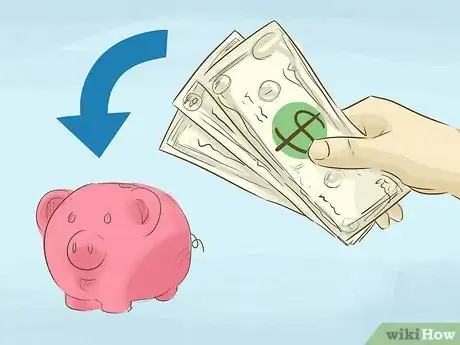


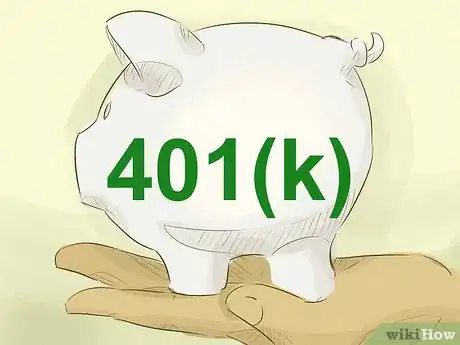



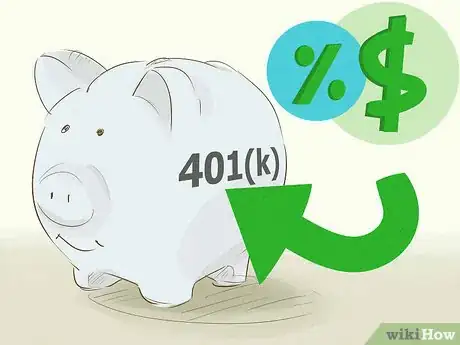


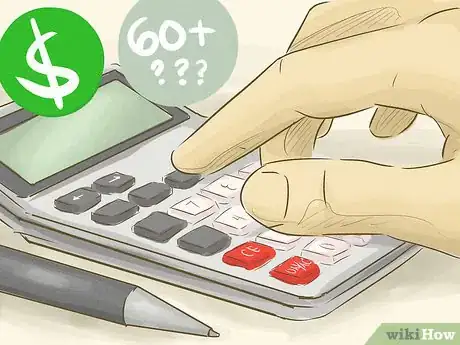

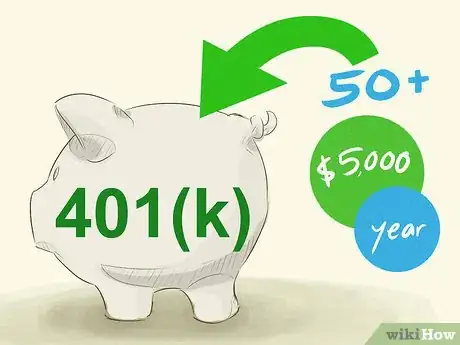

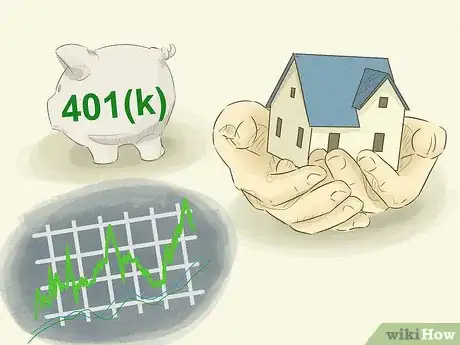
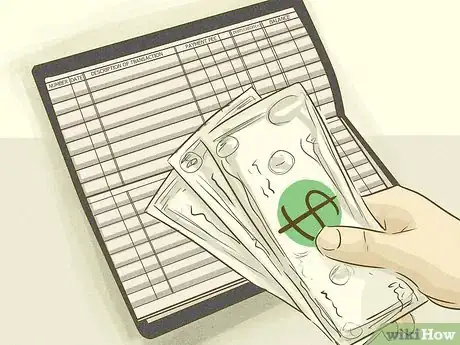


-Step-9-Version-2.webp)
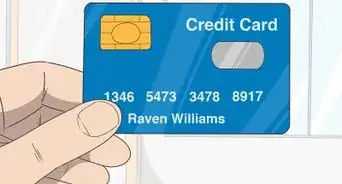












-Step-9-Version-2.webp)



































